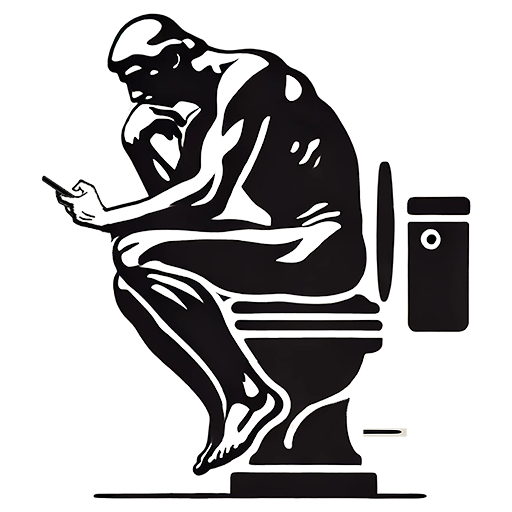The Midlife Transition: An Overview
Midlife is often portrayed as a period of crisis—a time when men experience a profound reevaluation of their lives, careers, relationships, and sense of purpose. While the stereotype of the “midlife crisis” might be exaggerated, there’s truth behind the struggles many face during this phase. The pressure of balancing professional life with personal fulfillment, managing financial responsibilities, and coping with the inevitable passage of time can lead to stress and doubt.
Common Midlife Issues
- Career Stagnation or Change Many men hit a plateau in their careers during midlife. What once felt like an upward trajectory now seems static. Some may question whether they’ve truly achieved their potential or contemplate a career pivot, but the fear of change holds them back. A sense of “Is this all there is?” can cloud what was once a clear vision for the future.
- Physical Aging Midlife often comes with physical changes that are hard to ignore. Bodies age, recover slower, and may develop health problems that weren’t on the radar before. This reality can be tough for men who have identified strongly with their physical prowess or stamina.
- Relationship Shifts Personal relationships evolve—whether it’s with a spouse, children, or friends. Empty nests, divorce, or simply feeling distant from long-time companions can bring a sense of isolation.
- Existential Questions As time passes, people inevitably ask bigger, deeper questions: What have I accomplished? Am I living the life I wanted? What’s my legacy? These reflections are normal but often lead to emotional turbulence, particularly if one feels they’ve strayed from their core values or dreams.
Marcus Aurelius on Life and Control
In facing these modern challenges, the wisdom of Roman Emperor and Stoic philosopher Marcus Aurelius remains strikingly relevant. His reflections, written in his personal journal, Meditations, were not intended for an audience. Yet, they’ve become a guiding light for countless people grappling with the difficulties of life—including those of midlife.
1. Accept What You Cannot Control Aurelius famously wrote: “You have power over your mind—not outside events. Realize this, and you will find strength.”
For men at midlife, this lesson is critical. We cannot control the aging process, external career factors, or how others respond to us. But we can control how we react to these changes. By focusing on what’s within our power—our mindset, our actions, and our choices—we gain a sense of peace amidst uncertainty.
2. Embrace Change and Impermanence Midlife often forces people to confront the transient nature of things. Marcus Aurelius reminds us that change is the essence of life:
“Observe constantly that all things take place by change, and accustom yourself to consider that the nature of the universe loves nothing so much as to change the things which are and to make new things like them.”
Rather than resist change, whether it be career transitions, aging, or shifting relationships, Aurelius encourages us to embrace it. Recognizing that life’s nature is to evolve helps us accept midlife as a time of potential rebirth rather than crisis.
3. The Importance of Purpose and Duty Midlife can lead to feelings of purposelessness, but Marcus Aurelius often emphasized the importance of aligning oneself with a greater sense of duty.
“At dawn, when you have trouble getting out of bed, tell yourself: I have to go to work—as a human being. What do I have to complain of, if I’m going to do what I was born for—the things I was brought into the world to do?”
While many men in midlife grapple with what their life’s purpose truly is, the Stoic philosophy advises us to focus on our roles and duties—to our family, to society, and to ourselves. By seeing our daily efforts as part of something larger, we can derive meaning from even the most mundane tasks.
4. Finding Peace in the Present A major midlife struggle is the temptation to dwell on the past or fear the future. Marcus Aurelius reminds us that peace is found in the present:
“Confine yourself to the present.”
Living in the moment—rather than ruminating on past failures or future anxieties—is the key to mental tranquility. When facing midlife uncertainty, it’s vital to ground oneself in the present, finding joy and meaning in the day-to-day instead of constantly questioning what lies ahead.
Applying Stoicism to Midlife
As men navigate the complexities of midlife, the philosophy of Marcus Aurelius offers timeless strategies for coping with modern challenges:
- Focus on what you can control: Career changes, physical aging, and evolving relationships are natural. How you handle them is your choice.
- Accept the inevitability of change: Whether you’re facing a career pivot or empty nest syndrome, embracing change as a natural part of life will help reduce stress.
- Live with purpose: Find meaning in your daily tasks and responsibilities. Purpose isn’t always about grand achievements; it’s often found in small acts of duty and kindness.
- Stay present: Worrying about the future or regretting the past robs you of the joy and peace that can be found right now.
Conclusion: Midlife as an Opportunity
Midlife is not a crisis unless we allow it to become one. By applying the wisdom of Marcus Aurelius, men can transform this stage into a period of growth, reflection, and reinvention. Instead of fearing the changes that come with midlife, embrace them as opportunities to live more intentionally, guided by a philosophy that has withstood the test of time.

Leave a Reply